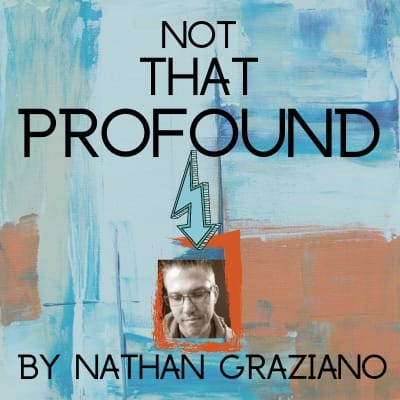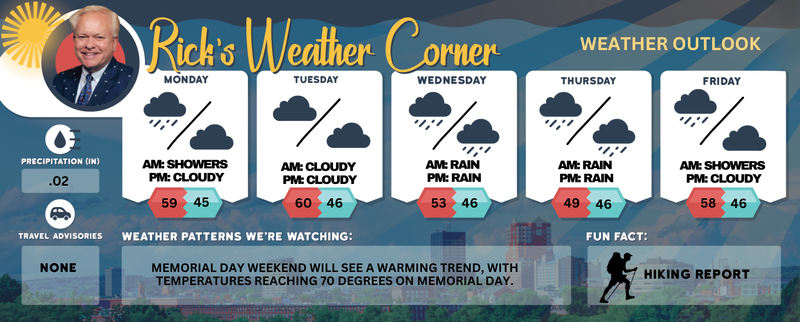Teaching Orwell in Orwellian times
I never fathomed that I would teach George Orwell’s novel “1984” in a media course. Published in 1949, the novel certainly has its merits as a deeply imaginative work of dystopian fiction, but what could it possibly teach about our contemporary media landscape?


I never fathomed that I would teach George Orwell’s novel “1984” in a media course. Published in 1949, the novel certainly has its merits as a deeply imaginative work of dystopian fiction, but what could it possibly teach about our contemporary media landscape?
Then Felon 47 took office on Jan. 20, and suddenly the novel seems less like dystopian fiction, and more like a frightful prophecy for those of us resisting the current march toward authoritarian rule. The novel now reads like a “how-to” guide for bloodless tyrants trying to orchestrate a dictatorship.
The similarities between Orwell’s novel and what we are watching unfold daily, through various forms of media, are bone-chilling and too uncanny to ignore.
It has been more than two decades since I last taught the book. Back in the early 2000s, I would pair “1984” with Aldous Huxley’s “Brave New World” in an honors British Literature class.
I can remember having some spirited discussions with my students back then about the dangers of not reigning in the technologies that were still emerging, and how the pharmaceutical companies were trying to solve all of our problems with a single pill to make us happy, but even with George W. Bush and Dick Cheney in office, we never even entertained the possibilities that the United States would become a totalitarian Hell-scape.

Now, reading “1984” again, two decades later, my response to the text has been deeply unnerving and viscerally unsettling. While I pride myself in not revealing my politics to my students, it is impossible to ignore the connections staring us in the face, or the passages that read like they could’ve been plucked from yesterday’s newspaper.
For starters, just about every news venue these days—on both sides of the political spectrum—is an extended version of “Two Minutes Hate.” Flip to any media outlet, and you’re likely to be greeted by images and wild tales vilifying the opposing party’s political views while the audiences at home scream at their screens.
“That sounds like Fox News,” said Ryan, one of my students. “There’s that guy with the weird part in his hair, always screaming at his guests.”
I shrugged, resisting the urge to castigate Sean Hannity, who very well knows that his bloviating is total bullshit yet says it anyway.
Then there is the Trump supporter’s ability to apply “doublethink” to situations where they consciously know that Trump is lying and, in the same instance, believe that he is telling them the truth. Here is how the concept of “doublethink” is defined in the novel:
“To know and not to know, to be conscious of complete truthfulness while telling carefully constructed lies, to hold simultaneously two opinions which cancelled out, knowing them to be contradictory and believing in both of them, to use logic against logic, to repudiate morality while laying claim to it, to believe that democracy was impossible and that the Party was the guardian of democracy, to forget whatever it was necessary to forget, then to draw it back into memory again at the moment when it was needed, and then promptly to forget it again: and above all, to apply the same process to the process itself. That was the ultimate subtlety: consciously to induce unconsciousness, and then, once again, to become unconscious of the act of hypnosis you had just performed. Even to understand the word ‘doublethink’ involved the use of doublethink (Part I: Ch. III).”
“Would that be, like, what happened with the whole January 6-thing?” Katie asked, scratching her head. “I mean, everyone knows he lost the election, but at the same time, Trump kept lying to them that he won, and they believed it, so they attacked the Capitol.”
“That’s an interesting connection,” I said, knowing that Katie nailed it.
But there was one passage for me, when I read it recently, that took away my breath. It is at the end of Chapter V of Part II, and the main character, Winston Smith, is lounging, post-coital, with his illicit girlfriend, Julia, in a room that they rent, believing there is not a telescreen monitoring their every move—like the cameras on our phones. The passage reads:
“In a way, the world-view of the Party imposed itself most successfully on people incapable of understanding it. They could be made to accept the most flagrant violations of reality, because they never fully grasped the enormity of what was demanded of them, and were not sufficiently interested in public events to notice what was happening. By lack of understanding they remained sane. They simply swallowed everything, and what they swallowed did them no harm, because it left no residue behind, just as a grain of corn will pass undigested through the body of a bird.”
Like I said, this stuff is bone-chilling.
The good news is that we’re not Airstrip One in Oceania, not yet. These are, indeed, frightening times for those of us who care about the truth, and care about other people, and care about democracy.
I would like to say that the people supporting Trump’s regime should go back and read Orwell’s novel, but those people who most need to read “1984” probably don’t read at all, and they probably wouldn’t get it anyway.
You can reach Nate Graziano at ngrazio5@yahoo.com.





